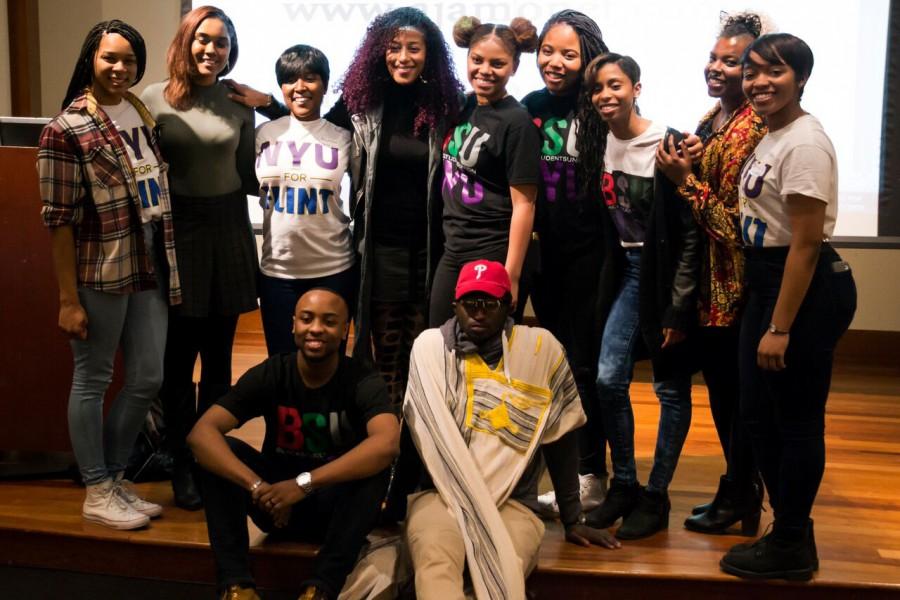BSU Hosts Solidarity Conference
This year’s Black Solidarity Conference was centered around the idea of black identity.
February 22, 2016
The Black Student Union hosted their annual Black Solidarity Conference on Saturday, focusing on the individual narratives of the black community that go beyond their identification through race.
The theme of this year’s conference was black identity. The conference began with guest speaker Cornell Woodson, the associate director for Diversity and Inclusion at Cornell University. Woodson focused his talk on a need for empathy and understanding within communities.
One of his central points focused on how, in this century, people typically don’t try to empathize and understand each others’ pain if they cannot relate. Woodson states that it is necessary, especially in the the black community, to understand one another rather than become divided due to differences outside the realm of race.
“By not understanding another narrative that may not be our own within the black community, we are thereby contributing to white supremacy,” Woodson said.
Woodson continued his presentation by quoting an article by Darnell Moore discussing the need for love among one another despite differences. He highlighted this by giving examples of what he sees as lovelessness.
“Lovelessness is black able-bodied people rendering the struggles of the disabled or chronically ill null,” Woodson said. “Lovelessness is black heterosexual women loving women until they found out they’re queer.”
Following this, there were two rounds of breakout sessions in which participants could choose from three different sessions to go to: black-queer identity, black-Muslim identity and Afro-Latino identity. These sections were student-led and were intended to discuss aspects of the black community that create unique narratives among them.
Tisch sophomore Tamir Griffen and Robert Taylor, who works at the LGBT student center, led the black-queer identity break out session, which centered around how students can give a voice to the LGBT community within the black community. The topics of homophobia and transphobia were discussed which led to the question posed by Griffen: Can someone be pro-black and homophobic?
Gallatin sophomore, Aaliyah Jihad said she believes these views could not be coupled together.
“If both homophobia and racism are forms of oppression that stem from white supremacy, you can’t be pro-black and support a form of oppression that was started from white supremacy,” Jihad said.
In each of these breakout sessions, there was a focus on empowering the black community as a whole through aspects such as sexuality, religion and being of multiple ethnicities. A common theme throughout these sessions emerged: in order to advocate for black individuals collectively, differences among the community must be embraced rather than oppressed or ignored.
CAS junior Brea Adaka Childs, who is involved with public relations for the BSU, emphasized the need to recognize differences.
“What we’re trying to do is get different kinds of black people to come together,” Childs said. “The straight, Christian narrative is typically the most prevalent, and this is true in the black community as well. This event is all about breaking down those walls, getting to know each other and even being vulnerable to one another.”
A version of this story appeared in the Feb. 22 print edition. Email Brooke Jensen at [email protected].
























































































































































